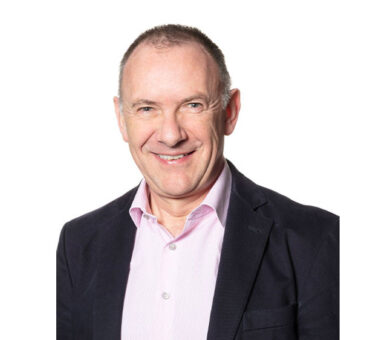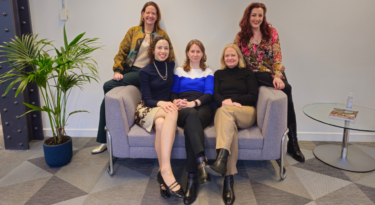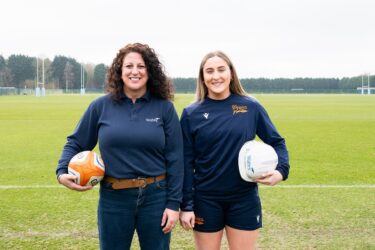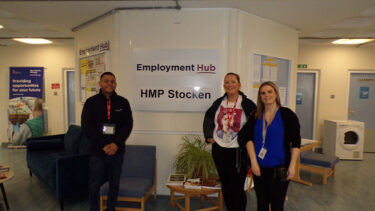Paul Rowan is Group HR Director at Wates, and a member of Wates’ Executive Committee. In this interview, conducted as part of Wates Inclusion Month, he reflects on his experience of Wates’ reverse mentoring scheme.
When Paul Rowan first heard about reverse mentoring, he was curious: having worked in HR for a long time, he was reasonably familiar with the principles of mentoring and knew what to expect, but had never encountered it through the lens of anti-racism.
Paul was matched with Trevor, a Senior Design Manager from the Residential business. As part of his mentorship conversations with Trevor, it became increasingly clear to Paul that a significant part of the problem is the inertia of a white majority group who don’t consider themselves racist, but need to do better to be anti-racist.
“That realisation that saying nothing and hiding behind statements like “I’m not racist” whilst doing nothing to challenge that behaviour is no longer acceptable. Nothing will change if we won’t change.”
Through several mentoring sessions, Paul and Trevor had many discussions touching on how racism manifests itself in day-to-day life for colleagues of colour.
The Power of Privilege
While Paul and Trevor found many similarities in their everyday lives, what struck Paul was the number of occasions Trevor had to fight for what came to Paul without much consideration.
For example, not having to get a receipt every time he goes shopping for fear of being challenged for shoplifting, or wondering if the clothes he wears may make him more vulnerable to being stopped by police when driving home. This broadened Paul’s understanding of privilege:
“I would say I came from a “normal” background with little material wealth, and privilege is often a notion of material wealth. My mentoring experience and a lot of the learning from mentor groups has helped me to understand that my experience through childhood, education and employment has been smooth. I would never would have thought myself as a privileged person, nor that I had a privileged upbringing, but it’s definitely made me think of it and reframe my thoughts.”
On microaggressions
As a result of becoming more conscious of privilege, Paul has also become less tolerant of microaggressions; those little things which might seem insignificant, but when they’re experienced 20 times a day, become very significant indeed.
While in the past Paul may have ignored or explained away comments that may not have sat right with him, since the mentoring sessions he has made more of an effort to call them out and listen for when they are happening.
“In my job, it’s all about removing the cultural hiding places where people seek to trivialise the corrosive effect an accumulation of microaggressions can have. It’s that sense you get, particularly with a majority group who say “people are being too sensitive” or, “I didn’t mean it that way”. People need to walk in others’ shoes and stop trivialising it away.”
While the aim is not to make it an equally uncomfortable place for those who may not have meant to offend with their comments, sharing the discomfort isn’t necessarily a bad thing.
Getting comfortable with being uncomfortable
While it takes a lot of focus and energy to keep your own privilege in mind, or to listen out for and call out others who may inadvertently offend, it is nothing like the amount of energy people in minority groups have to invest in trying to live a normal life.
“Even if it’s uncomfortable to call it out, it is infinitely more uncomfortable to experience it.”
While at first it was uncomfortable for Paul to hear what some colleagues have to go through on a daily basis experiences that had never occurred to him he acknowledges that it’s important to get comfortable with being uncomfortable. Because that’s how things will ultimately change.





